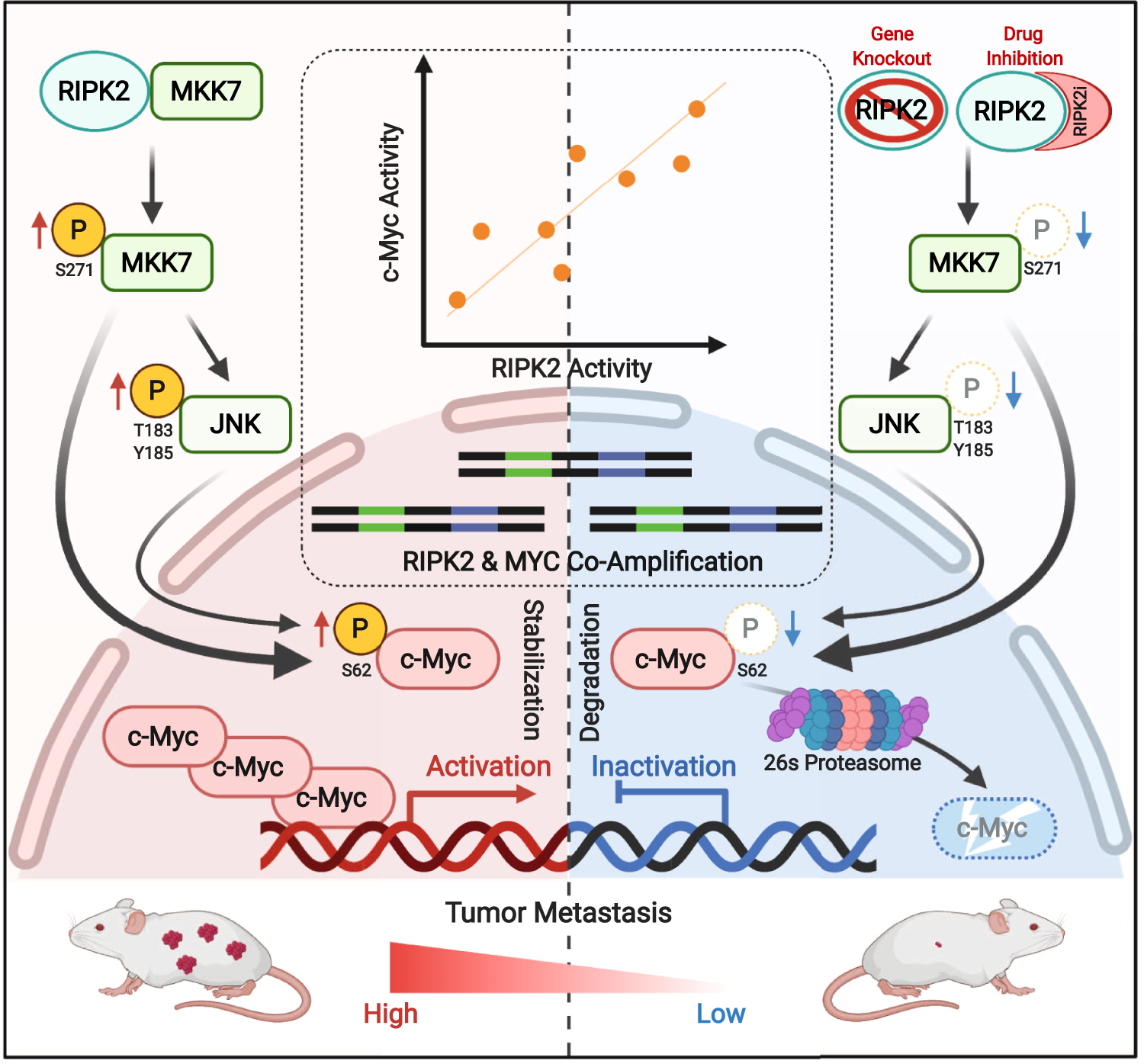Currently funded by one NCI R01 and two DoD awards, our research focuses on the following areas.
RIPK2 in Cancer Metastasis
In our recent publication (Nature Communications, 2022), we showed that the RIPK2 protein kinase is frequently overexpressed in lethal prostate cancer and that targeting RIPK2 reduced prostate cancer metastasis in mice by up to 92%. Using multi-level proteomics, we discovered that RIPK2 functions primarily through a non-canonical RIPK2/MKK7/c-Myc phosphorylation pathway. We are currently investigating the upstream regulators of RIPK2, additional downstream effectors and pathways of RIPK2, and the roles of RIPK2 in metastasis and immune evasion, as well as developing new small-molecule compounds to more specifically targeting the non-canonical RIPK2 signaling pathways. These studies will be expanded to several other cancer types where RIPK2 overexpression is associated with significantly shorter patient survival.

(Yan et al., Nat. Commun. 2022)
Protein Palmitoylation in Cancer Metastasis
Akin to protein phosphorylation, protein palmitoylation is a reversible post-translational modification that plays a critical role in cancer progression and metastasis. We developed cutting-edge palmitoyl-proteomics methods (Molecular & Cellular Proteomics, 2010; Analytical Chemistry, 2019) and applied them to address multiple interesting biological questions (Blood, 2011; Journal of Extracellular Vesicles, 2020; International Journal of Biological Sciences, 2020; Cellular and Molecular Life Sciences, 2021). For a review of palmitoyl-proteomics approaches, refer to our review articles (Journal of Proteomics & Bioinformatics, 2014; Journal of Proteome Research, 2021). We are currently investigating the roles and mechanisms of two palmitoylating enzymes, DHHC11 and DHHC2, in prostate cancer metastasis using our leading-edge palmitoyl-proteomics approaches.

(Wang et al. J. Proteome Res. 2021)
